Methylprednisolone 40mg Injection
$45.00 – $100.00Price range: $45.00 through $100.00
| Pack Size | Price | Price / Unit | Quantity | |
|---|---|---|---|---|
| 3 Packs | $45.00 | $15.00/ unit | ||
| 5 Packs | $60.00 | $12.00/ unit | ||
| 10 Packs | $100.00 | $10.00/ unit |
Looking for bulk / B2B pricing? | Send Inquiry |

| SKU | 11390 |
| Manufacturer | Shinepro Life Sciences Pvt. Ltd. |
| Categories | Inflammation |
| Delivery Time | 10 - 14 Working Days |
| Strength | 40mg |
Introduction to Methylprednisolone 40mg Injection
Methylprednisolone 40mg Injection is a corticosteroid medication widely used to treat various inflammatory and autoimmune conditions. It is typically prescribed when oral medications are not effective or when rapid symptom control is necessary, especially in hospital or emergency care settings.
This injection is commonly administered by a healthcare professional via intramuscular or intravenous routes. It offers fast relief in conditions such as severe allergies, arthritis flare-ups, asthma attacks, or other systemic inflammatory responses that require immediate intervention.
Methylprednisolone 40mg Injection is often used in short-term treatment plans but can also be part of long-term therapy under close medical supervision. The dosage and frequency are adjusted based on the severity of the condition and the patient’s response.
Uses of Methylprednisolone injection
- Severe Allergic Reactions
- Asthma and COPD Exacerbations
- Rheumatoid Arthritis and Lupus
- Skin Disorders
- Multiple Sclerosis Flares
How Does Methylprednisolone Injection Works?
Methylprednisolone 40mg Injection works by mimicking natural hormones produced by the adrenal glands to control various functions in the body. It reduces the production of substances that trigger inflammation, such as prostaglandins and cytokines, helping to relieve swelling, redness, and pain quickly.
By suppressing the immune system’s overactive responses, it effectively manages conditions caused by excessive inflammation, including asthma, arthritis, allergic reactions, and autoimmune disorders. This targeted action allows the body to heal while minimizing tissue damage caused by ongoing inflammation.
Side Effects of Methylprednisolone
Common Side Effects
- Headache
- Nausea or Vomiting
- Fatigue or Weakness
- Mood Swings or Irritability
- Increased Appetite
- Elevated Blood Pressure
Serious Side Effects
- Severe Allergic Reaction
- Vision Problems
- Mental Health Changes
- Stomach Bleeding or Ulcers
- High Blood Sugar (Hyperglycemia)
- Irregular Heartbeat or Chest Pain
Dosage of Methylprednisolone Injection
The dosage of Methylprednisolone 40mg Injection varies depending on the condition being treated, the severity of symptoms, and the patient’s overall health. For acute conditions like asthma or allergic reactions, a typical adult dose ranges from 10 mg to 250 mg, administered via intramuscular or intravenous injection.
In chronic inflammatory or autoimmune diseases, the dosage may be repeated every 24 to 48 hours, as directed by a healthcare provider. For best results and safety, the dose should be personalized and closely monitored by a doctor to minimize side effects and ensure effectiveness.
Other Dosage of Methylprednisolone
How To Manage Side Effects?
Managing the side effects of Methylprednisolone 40mg injection involves a combination of proactive measures, communication with healthcare providers, and, in some cases, adjustments to the treatment plan. Here are general strategies for managing common side effects of Methylprednisolone 40mg injection:
- Regular Monitoring
- Communication with Healthcare Provider
- Adherence to Prescribed Dosage and Schedule
- Tapering the Dose Gradually
- Management of Fluid Retention
- Dietary Considerations
- Bone Health Measures
Warninga & Precautions
Methylprednisolone 40mg injection is a potent medication with potential side effects, and certain warnings and precautions should be considered before and during its use. It’s crucial for healthcare providers to carefully assess each patient’s medical history and monitor them closely during treatment. Here are some important warnings and precautions associated with Methylprednisolone 40mg injection:
1. Infections:
- Methylprednisolone 40mg injection can suppress the immune system, increasing the risk of infections. Patients should be cautious about exposure to infectious agents, and healthcare providers may recommend vaccination against certain infections before starting treatment. If signs of infection (fever, persistent sore throat) occur during treatment, patients should seek medical attention promptly.
2. Live Vaccines:
- Administration of live vaccines should be avoided during Methylprednisolone 40mg injection treatment, as the immunosuppressive effects of the medication may reduce vaccine efficacy.
3. Fungal Infections:
- Methylprednisolone 40mg injection may increase the risk of developing systemic fungal infections. Patients with pre-existing or latent fungal infections should be monitored closely, and antifungal therapy may be necessary in certain cases.
4. Tuberculosis:
- Patients should be screened for latent tuberculosis before starting Methylprednisolone, as the medication can potentially reactivate latent infections. Tuberculosis prophylaxis may be recommended in certain situations.
5. Cardiovascular Effects:
- Long-term use of Methylprednisolone 40mg injection, especially at high doses, may be associated with cardiovascular effects such as hypertension and an increased risk of thromboembolism. Blood pressure should be monitored regularly.
6. Gastrointestinal Issues:
- Methylprednisolone can cause or exacerbate gastrointestinal issues, including peptic ulcers. Patients with a history of gastrointestinal bleeding or ulcers should use the medication with caution.
7. Diabetes:
- Methylprednisolone 40mg injection may lead to elevated blood glucose levels, particularly in individuals with diabetes. Blood glucose should be monitored regularly, and adjustments to diabetes medications may be necessary.
Storage
- Store at Controlled Room Temperature
- Do Not Freeze
- Protect from Light
- Keep Out of Reach of Children
- Check Expiry Date
Frequently Asked Questions
1. Can Methylprednisolone 40mg Injection Be Stopped Suddenly?
Ans. Abrupt discontinuation of Methylprednisolone 40mg without medical supervision is not recommended. Tapering the dose gradually is often necessary to prevent adrenal insufficiency and withdrawal symptoms.
2. Can Methylprednisolone 40mg Injection Interact With Other Medications?
Ans. Yes, Methylprednisolone 40mg can interact with other medications. Patients should inform their healthcare provider about all medications, including over-the-counter drugs and supplements, to avoid potential interactions.
3. How Is Methylprednisolone Injection Administered?
Ans. Methylprednisolone 40mg injection is typically administered by healthcare professionals, either intravenously or intramuscularly. The route of administration depends on the specific medical condition being treated and the severity of symptoms.
| Pack Size | 10 Packs, 3 Packs, 5 Packs |
|---|---|
| Price/Unit | $10/unit, $12/unit, $15/unit |
4 reviews for Methylprednisolone 40mg Injection
Add a review Cancel reply
Related Products
Inflammation
Inflammation
Inflammation

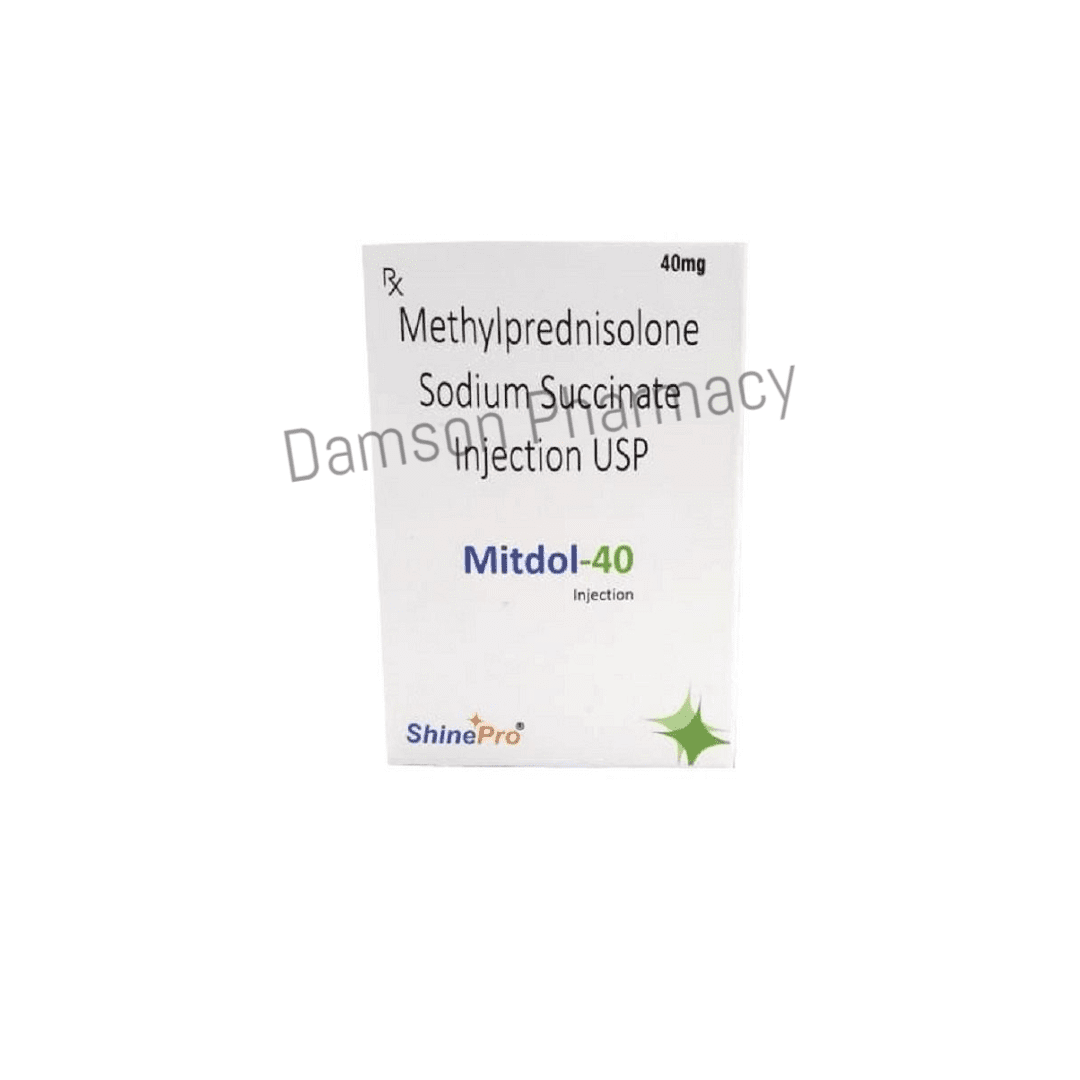
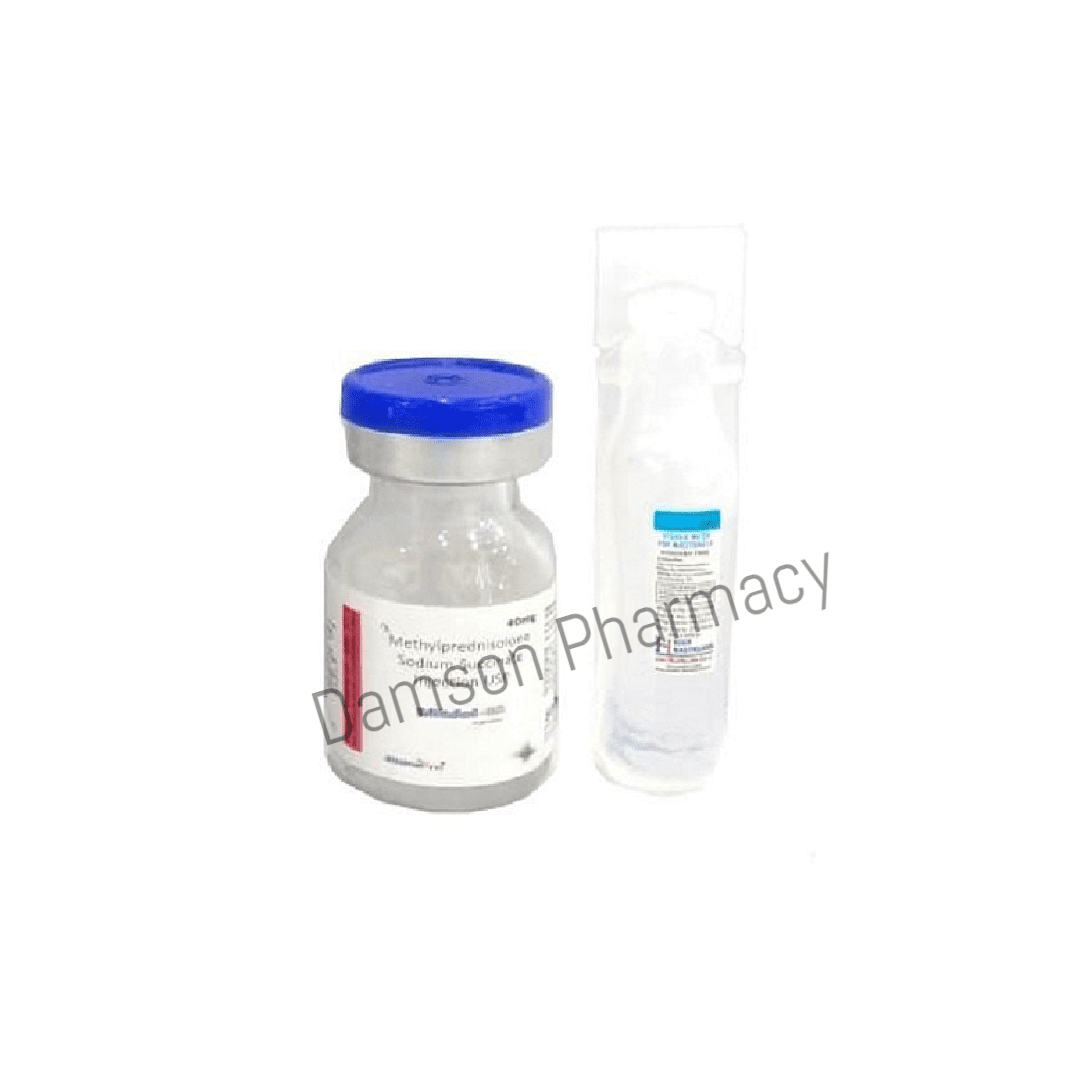
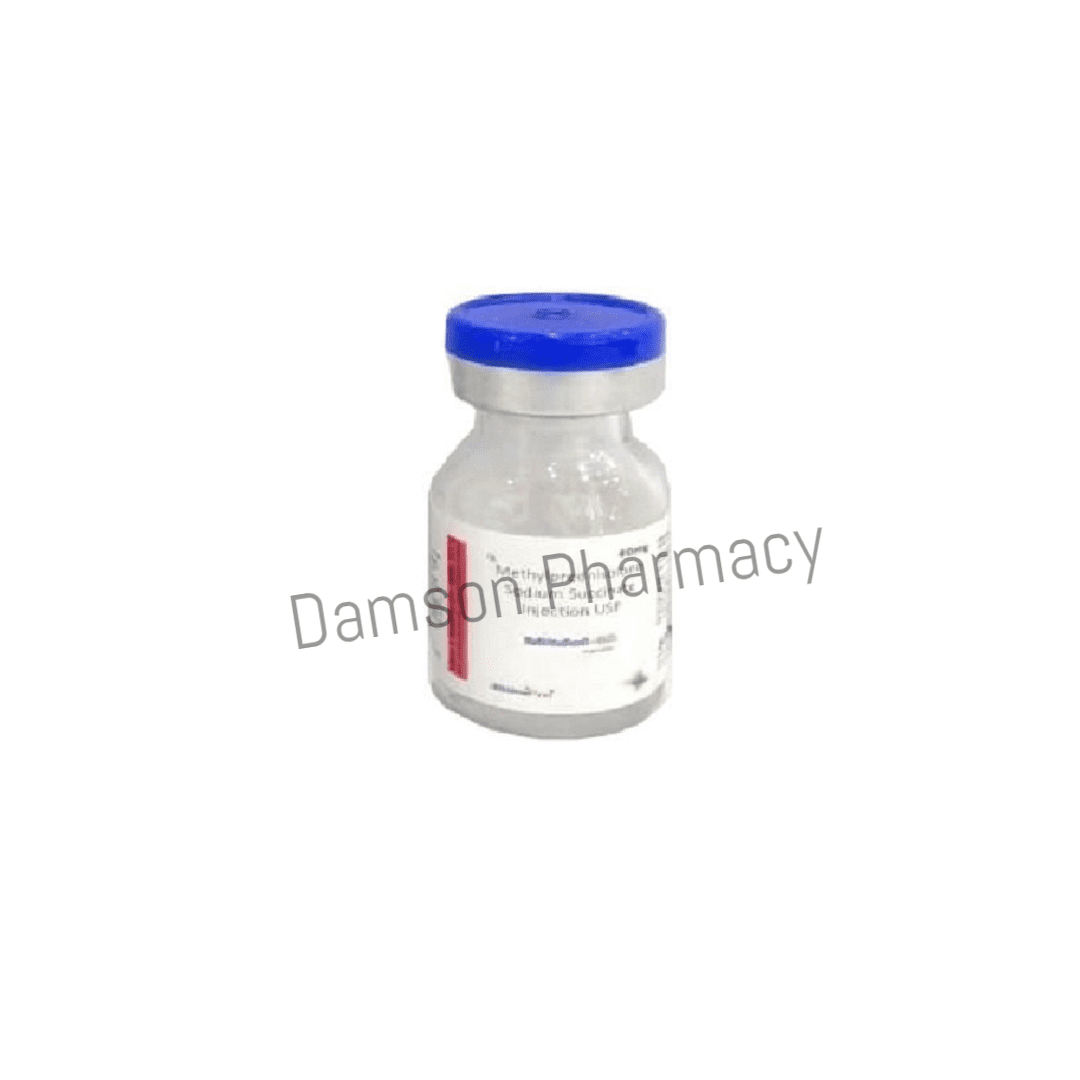
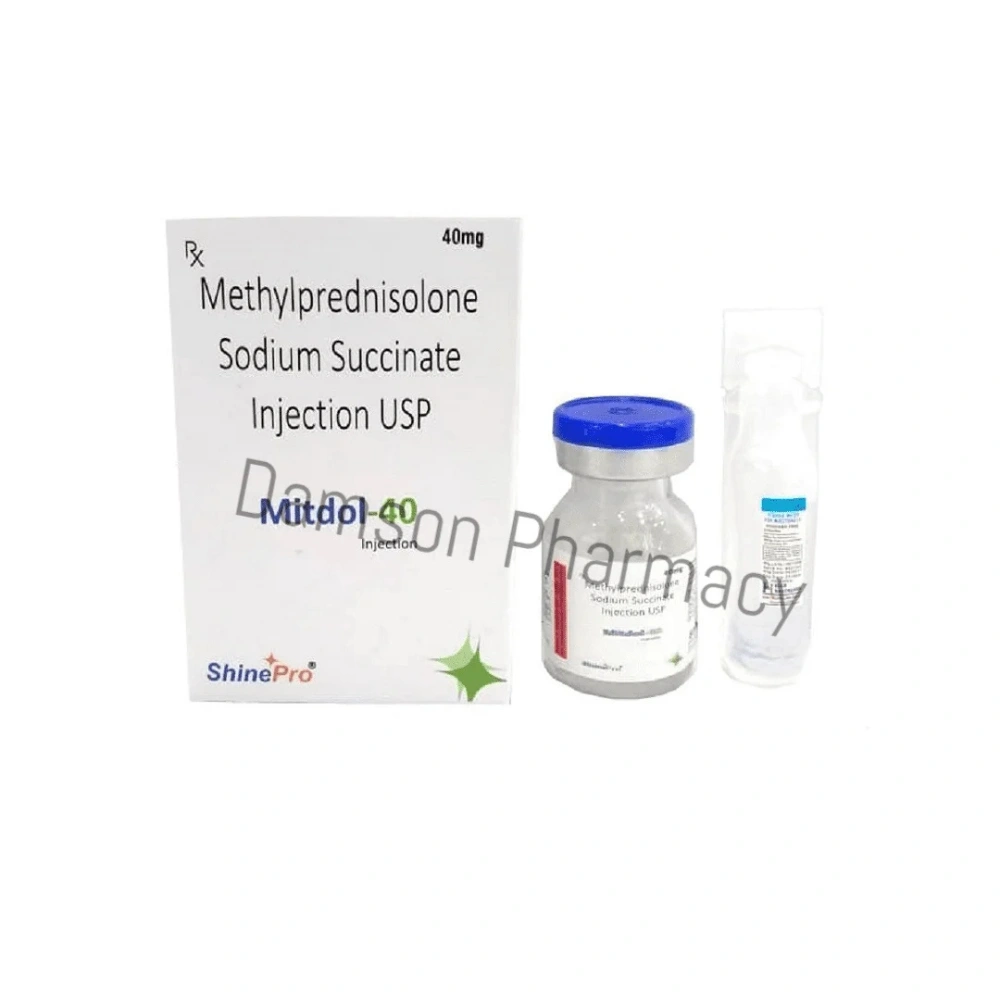
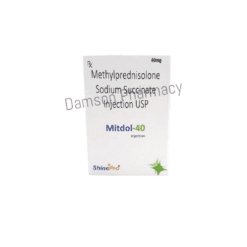
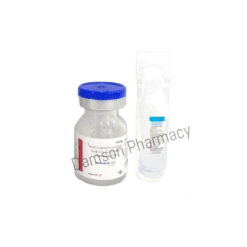
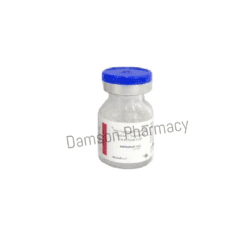
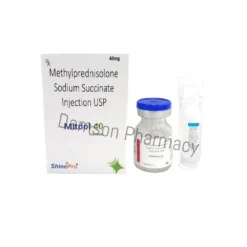
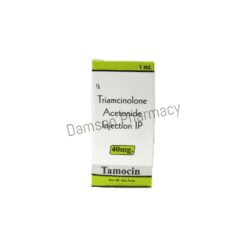
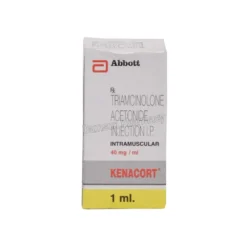
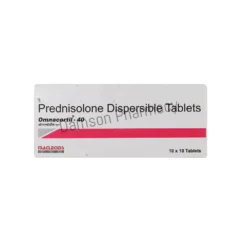
Khris –
Very good service excellent product will order again 5star
Elvis –
Excellent service competitive pricing would definitely recommend this pharmacy
Moore –
Quick Response and Very Easy!
Rerinae –
Aarav was very helpful in getting my payment taken care of!